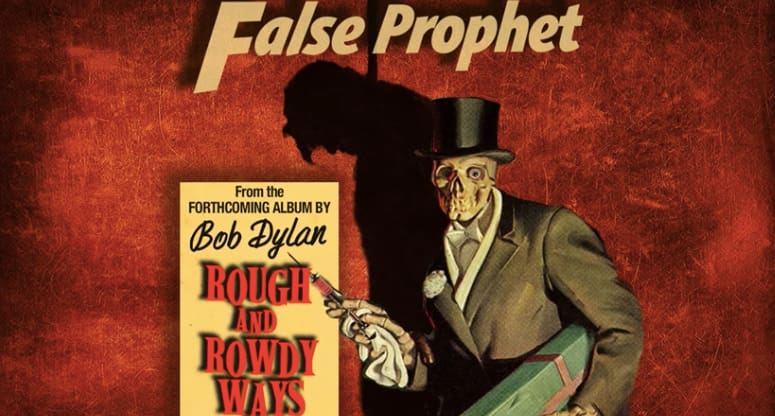How Well Do You Know False Prophet Lyrics Quiz
Question 1 |
What is the central theme of the lyrics?
Love and heartbreak | |
The search for meaning in life | |
Political rebellion | |
A nostalgic reflection on youth | |
A supernatural horror story |
Question 1 Explanation:
The lyrics focus on existential struggle, truth-seeking, and rejecting falsehoods.
Question 2 |
What does "enemy of the unlived meaningless life" mean?
Fears dying young | |
Fights against injustice | |
A ghost haunting the living | |
Opposes love | |
Rejects a purposeless life |
Question 2 Explanation:
The phrase suggests disdain for an unexamined or wasted life.
Question 3 |
What literary device is used in "The city of God is up there on the hill"?
Simile | |
Metaphor | |
Personification | |
Hyperbole | |
Alliteration |
Question 3 Explanation:
It represents a higher spiritual state rather than a literal city.
Question 4 |
Who are "Mary Lou" and "Miss Pearl" likely to be?
Religious figures | |
Lost lovers | |
Mythological beings | |
Symbolic guides | |
Family members |
Question 4 Explanation:
The line "My fleet-footed guides from the underworld" suggests they lead the speaker spiritually.
Question 5 |
"No stars in the sky shine brighter than you" signifies:
Admiration | |
A celestial event | |
A prophecy | |
A comment on fate | |
Loneliness |
Question 5 Explanation:
The metaphor implies deep admiration.
Question 6 |
"Put out your hand, there's nothing to hold" suggests:
Emotional emptiness | |
An invisible force | |
Offering guidance | |
A warning about greed | |
Physical weakness |
Question 6 Explanation:
It implies loneliness or disillusionment.
Question 7 |
What emotion does “vengeance on somebody’s head” convey?
Love | |
Forgiveness | |
Revenge | |
Regret | |
Hope |
Question 7 Explanation:
The phrase implies a desire for retribution.
Question 8 |
What does "lusty old mule" imply?
Physical weakness | |
Stubbornness | |
Intelligence | |
Innocence | |
Peace |
Question 8 Explanation:
Mules are often symbols of stubborn persistence.
Question 9 |
"I go where only the lonely can go" means:
The speaker is a wanderer | |
They seek solitude | |
They live in isolation | |
They avoid people | |
They fear crowds |
Question 9 Explanation:
The phrase suggests a path reserved for the lonely.
Question 10 |
"A ball and chain" is a metaphor for:
Freedom | |
A celebration | |
A powerful weapon | |
A burden | |
A form of transportation |
Question 10 Explanation:
The phrase traditionally refers to restriction or responsibility.
Question 11 |
The phrase "I ain't no false prophet" suggests that the speaker...
Rejects religious authority | |
Sees themselves as a truth-teller | |
Is uncertain about their beliefs | |
Is mocking religious figures | |
Wants to deceive others |
Question 11 Explanation:
The speaker insists they are not a fraud, implying they speak truthfully.
Question 12 |
The lyric "Put out your hand, there's nothing to hold" most likely represents:
The insignificance of human actions | |
The rejection of relationships | |
The passing of time | |
The inability to grasp reality | |
The illusion of control |
Question 12 Explanation:
The speaker implies that what we seek to hold onto is ultimately unattainable.
There are 12 questions to complete.

